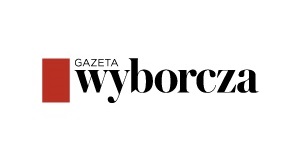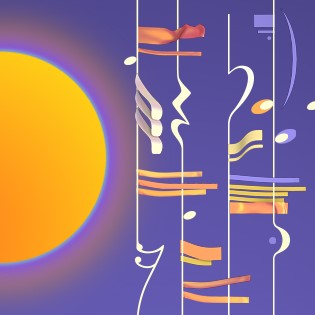This is the second edition of the Sinfonia Varsovia to Its City Festival in the shadow of the pandemic. After another period of dormancy and remoteness, restrictions on travel and real-life experiences, we are all, perhaps a bit timidly but eagerly, coming back to cultural life. The need for interaction with another human being, be it a listener or an artist, and with live, unmediated sound will enable us to deepen our relationship with music and ourselves. This year’s program offers many opportunities to experience that. The repertoire will take the audience on a journey into close and distant musical spaces, the real and imaginary past, as well as the present. It will bring fun and relaxation, allow for personal interaction with chamber music, and give the audience a sense of community in the symphonic repertoire.
The Festival (29 July) will open with music by Astor Piazzolla in distant Argentina, which is yet closer than we might think, as the composer’s tango nuevo was loosely inspired by European music. The young composer had the opportunity to study it in Paris with Nadia Boulanger, a doyenne of musical neoclassicism. The three-movement Aconcagua Concerto for bandoneon and orchestra was composed in a classical idiom. Named after the highest mountain peak in the Andes, Aconcagua became the peak of Piazzolla’s oeuvre and is the focal point of our concert.
The Festival’s finale (2 September) will be the polar opposite: the romantic repertoire will include Fryderyk Chopin’s Piano Concerto No. 2 in F minor, Op. 21 and Pyotr Tchaikovsky’s Symphony No. 5 in E minor, Op. 64 performed by a full-size orchestra, and unlike the other concerts of the summer Festival, it will have two parts. The evening will feature the award-winning young Polish pianist, Szymon Nehring, and the Serbian kapellmeister, Aleksandar Markovic, who will make his Festival debut, although he is already known to the orchestra’s musicians and the Warsaw audience for his impressive performance of Rimsky-Korsakov’s Scheherazade during the 2019 Crazy Days of Music.
It is worth noting that the day of the Festival’s finale marks the 40th anniversary of the death of Tadeusz Baird, a prominent composer based in the Saska Kępa neighborhood since his childhood. The composer’s mother was an admirer of Tchaikovsky, whose operas she often played on the piano at their home on Lipska Street. His father, a zootechnician and agronomist, was associated with the Warsaw University of Life Sciences, where Sinfonia Varsovia’s home is located today. The memory of Tadeusz Baird, an erudite, co-founder of the Warsaw Autumn Festival, and composer of theater and film music, will be honored with a performance of the Colas Breugnon Suite conducted by Jerzy Maksymiuk (26 August).
This piece, perhaps one of the most frequently performed Baird’s works, was originally composed for a radio play and is a very successful stylization of old French dances, unusually cheerful and optimistic, just as the character created by Romain Rolland. That evening we will also feature another stylized masterpiece, Béla Bartók’s Divertimento for Strings. Commissioned by the Swiss conductor and philanthropist, Paul Sacher, the piece refers to the classical form of 18th-century light music. Bartók rose to the challenge in every respect: he wrote the work over a dozen days in August 1939 (it was his last work before leaving Europe) and beyond the divertimento form, he also made use of the Baroque concerto grosso and incorporated a full three-voice fugue into the final movement. The folk music references in Bartók’s work serve as a great introduction to the folk and modern character of Wojciech Kilar’s Orawa.
Intermingling of cultures, folklore references and dialogue with closer and more distant traditions – these are the main themes of this year’s Festival. Each composer took a different approach to tradition. The personal and sentimental one is evidenced by the Moldavian themes in the music by Mieczysław Wajnberg (5 August). The then-Bessarabia must have been a kind of family Arcadia, despite the pogroms that influenced his father’s decision to move to Warsaw. Antonín Dvořák’s approach (8 August, 19 August) is to some extent political: his commitment to forging a Czech national musical style led to an invitation to become the director of the National Conservatory of Music of America (1892-95) with the mission to develop an American school of composition grounded in local folk music. The composer took on a very modern attitude towards the heritage of American traditional music. He saw it in the music of its black, excluded inhabitants. Perhaps since he fought for a similar cause in Europe, he often weaved Slavic musical elements (such as alla polacca in the American Suite) into nominally “American” compositions. Prokofiev’s famous Classical Symphony (12 August), on the other hand, was a kind of “training” and an attempt to follow the style of Haydn and especially Mozart. In Pulcinella (5.08), Stravinsky not so much emulated the music of the old Italian masters (especially Pergolesi), but rather turned to Western inspirations (commedia dell’arte), temporarily abandoning Slavic motifs.
Traditions and their reinterpretations are great material for educational projects and family concerts. The widely acclaimed Little Basil, a good dragon living in Sinfonia Varsovia’s instrument warehouse, will “come out of the Internet” to host live family concerts. Little Basil will get fascinated by Warsaw songs (31 July), and like all dragons, the curiosities of orchestral instruments (7 August), and animal themes in music (14 August). Although this concert is not part of the dragon series, its “fairy-tale” repertoire with the unique-sounding Sinfonia Varsovia wind ensemble led by Michał Klauza (19 August) will certainly cater to the tastes of concertgoing families.
The chamber music series will include two masterpieces: Dvořák’s Second Piano Quintet (8 August) and Olivier Messiaen’s Quartet for the End of Time (15 August). Messiaen’s legendary “camp” work had its premiere in 1941 in Goerlitz. Written under the harsh conditions of imprisonment, cold, and hunger, the piece has a visionary and mystical quality and remains universally relevant today. This is an important point of reference for the Experimental Tuesdays series curated by Wioleta Żochowska. The events correspond to the challenges of modernity in times of the pandemic, sometimes extreme in their artistic impact, but certainly worth exploring. These will include: loneliness (Contemporary Music Ensemble Synaesthesis, 3 August), the merging of the real and the virtual (Kompopolex, 10 August), time – recollection – projection (Hashtag Ensemble, 17 August), and the body – sound relationship (Flow Unit 3, 24 August). The series finale (Sinfonia Varsovia Camerata, 31 August) will return to the question of what role the traditional chamber forms play in the music of our times.
Łukasz Strusiński







